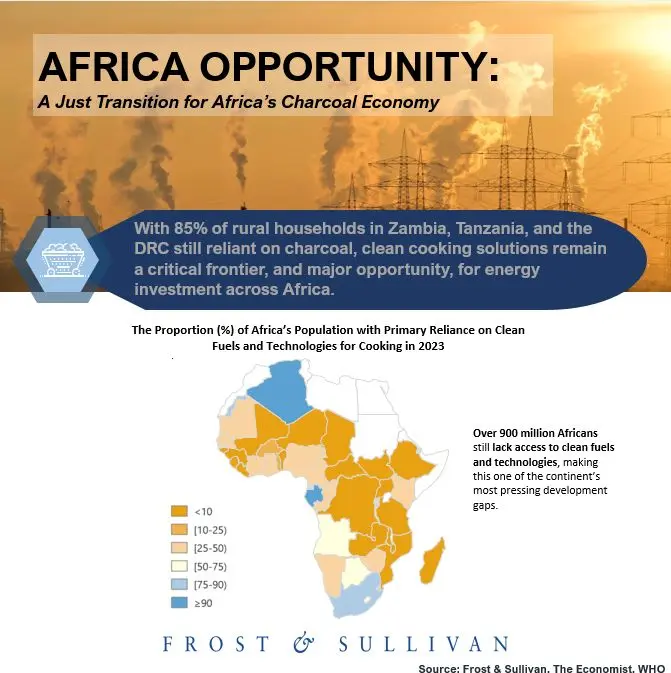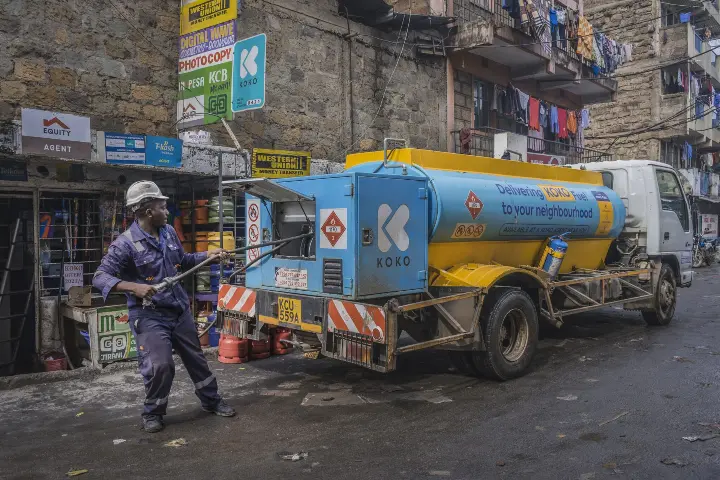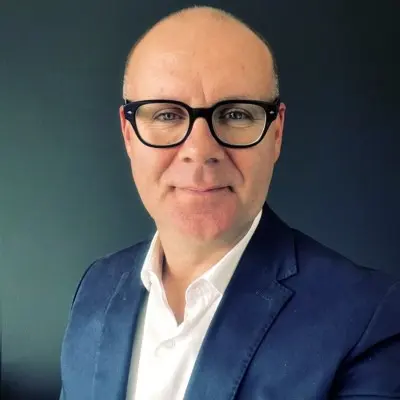Across African cities, charcoal remains the primary cooking fuel for nearly 200 million Africans, including 27% of urbanites. In the Democratic Republic of Congo, over 70% of households rely on it. In Tanzania, it is close to 60%, while in Kenya, charcoal still fuels more than 40% of homes. Despite urbanisation and improved electrification, charcoal usage is rising, driven by its convenience. By weight it contains nearly twice as much energy as the wood from which it is made, making it easier to transport and access, especially in rural areas.

This dependence, however, has major consequences. Indoor air pollution from charcoal use is a leading contributor to respiratory illnesses, particularly among women and children. Environmentally, it is accelerating deforestation and carbon emissions. Despite the scale of this issue, access to alternatives remains limited. Over 900 million people across Africa still lack clean fuels and technologies.
Therefore, this is one of the continent’s most urgent and investable gaps.
In Kenya, KOKO Networks is rethinking urban energy with a tech-enabled platform that delivers clean bioethanol through a network of over 3,000 smart fuel ATMs in neighbourhood shops. With more than one million daily cooking events now powered by KOKO Networks, the model proves that clean cooking can scale commercially in low-income urban settings.

The opportunity extends beyond Kenya. Cities like Kampala, Dar es Salaam and Kinshasa are facing the same pressures: growing populations, rising fuel demand, and worsening health and environmental costs. As clean cooking innovation accelerates, these urban centres represent a significant opportunity for investment, manufacturing, and service delivery.
As clean alternatives remain out of reach for many, how should Africa balance the urgent need for energy access with the long-term shift away from charcoal?
